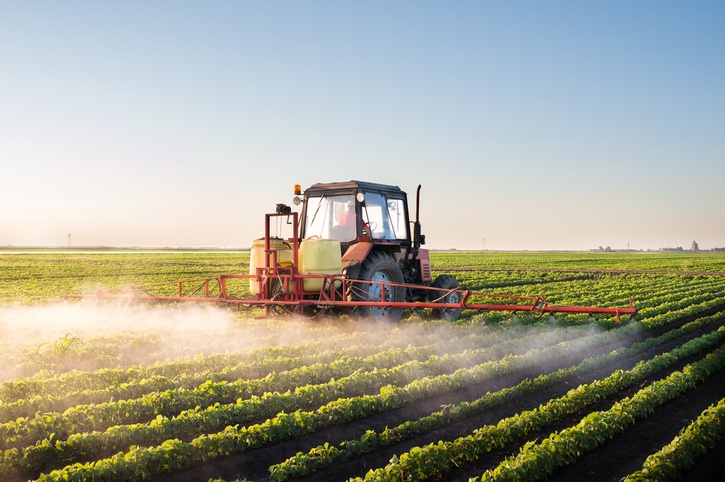On December 30, 2022, the U.S. Environmental Protection Agency (EPA) and the U.S. Army Corps of Engineers (collectively Agencies) announced the issuance of a final rule defining “waters of the United States” (WOTUS), a key term in the Clean Water Act (CWA). That phrase, which serves as the definition for “navigable waters” in the statute, effectively establishes the boundaries of the Agencies’ regulatory authority under the CWA.[1] The rule was published in the Federal Register on January 18, 2023, and will take effect 60 days thereafter.[2]
New WOTUS Rule Restores Protections for Many Waters, but Uncertainty Persists Due to Continuing Litigation
Topics: Litigation, Environmental Protection Agency, Environmental Policy, Environmental Law, WOTUS
U.S. EPA Fast-Tracking Implementation of Environmental Justice Initiatives
By Jeffrey Karp, Senior Counsel and Edward Mahaffey, Law Clerk
A cornerstone of the Biden Administration is environmental justice, which EPA defines as "the fair treatment and meaningful involvement of all people regardless of race, color, national origin, or income with respect to the development, implementation and enforcement of environmental laws, regulations and policies."
On April 7, EPA Administrator Michael Regan sent an email to all agency staff discussing the agency’s renewed commitment to environmental justice, and included four specific directives to all EPA offices. The first directive is stronger "enforcement of violations of cornerstone environmental statutes and civil rights laws in communities overburdened by pollution." (The memo does not identify what Mr. Regan considers "cornerstone environmental statutes" or which civil rights laws over which the EPA has enforcement authority.) The second is immediate incorporation of environmental justice considerations into the work of all EPA offices, "including assessing impacts to pollution-burdened, underserved, and Tribal communities in regulatory development processes and considering regulatory options to maximize benefits to those communities." The third directive involves "early and more frequent engagement with pollution-burdened and underserved communities affected by agency" actions, including regular consultation with Tribal officials. Finally, the email states that EPA offices should "consider and prioritize direct and indirect benefits to underserved communities in the development of grant applications and in making grant award decisions, to the extent allowed by law." Regan also noted that he and the rest of EPA’s senior leadership would establish more detailed plans and "measures of accountability" for environmental justice over the next few months.
Topics: Environmental Protection Agency, Environmental Law, Environmental Justice
Massachusetts Proposes New PFAS Regulations as States Tackle Contamination
By: Jeffrey Karp, Victor Baltera, Aaron Staudinger, and Maxwell Unterhalter
As in previous postings, we discuss recent state regulatory initiatives aimed at addressing groundwater and drinking water contamination by per- and polyfluoroalkyl substances ("PFAS"). PFAS are a group of synthetic chemicals that have been used widely in consumer and industrial products since the 1940s. Major applications have included coatings for paper and cardboard packaging products, carpets, textiles with water and oil repellency, non-stick surfaces, and firefighting foams. Due to their chemical structure, PFAS stay in the environment for a long time and do not degrade easily. PFAS have been detected in air, surface water, groundwater, drinking water, and soil.[1] They even have been found in grocery store items, such as meat, fish, dairy, and prepared chocolate-cake.[2] The widespread use and persistence of PFAS in the environment, together with growing evidence that low-level exposure may lead to adverse health effects, has increased concerns about safe levels of human exposure to PFAS.[3] In response, many more state and, to a lesser extent, federal initiatives have been undertaken to regulate PFAS. As discussed below, recently the Massachusetts Department of Environmental Protection (the "MassDEP") has proposed to regulate PFAS within the framework of the Commonwealth’s Massachusetts Contingency Plan.
Topics: Water, Environmental Law, PFAS
Symposium Spotlights Natural Resource Damage Regulations Under DOI Review
By Jeffrey Karp and Kevin Fink
Section 301(c) of the Comprehensive Environmental Response, Compensation, and Liability Act (“CERCLA”) authorizes the Federal government, States and federally recognized Indian Tribes to act as "trustees" on behalf of the public to pursue claims to redress injury or destruction of natural resources caused by hazardous substance releases. The measure of damages is calculated based upon the cost to restore or replace the injured or destroyed natural resources. Trustees also may recover compensation for services the resources would have provided the public pending restoration, as well as the reasonable cost of assessing injury and determining appropriate restoration.
Topics: Environmental Policy, Environmental Law
Sullivan & Worcester LLP Lawyers Assist Company Implementing Eco-Friendly Discovery of Nobel Prize Winner in Chemistry
By Leonard Miller and Jeffrey Karp
Dr. Frances H. Arnold, a chemical engineering professor at Caltech, has been awarded the 2018 Nobel Prize in Chemistry for her work on biofuels and pharmaceuticals. But she also is the inspiration for and a partner in a company trying to make pest control sustainable with synthetic biology. In 2013, Dr. Pedro S. Coelho, the company’s co-founder, along with Dr. Arnold and another scientist, started Provivi, which seeks to cost-effectively make pheromones that farmers can use to draw insects away from crops and prevent them from finding each other to mate.Topics: Pesticides, Environmental Law


.jpg?width=220&name=Sullivan%204c(B2402503).jpg)